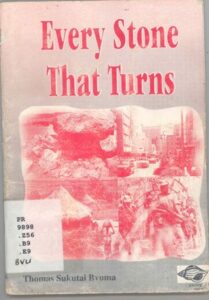General Overview Of the Book:
The book begins when Ramatoulaye, a Senegalese woman living in Dakar, the country’s capital decides to write a letter to her old friend Aissatou, who lives in America.
The letter is occasioned by the sudden death of Modou, Ramatoulaye’s estranged husband. In keeping with Muslim custom, Ramatoulaye must observe a mirasse, a forty day period of isolation and mourning. Over the course of this period she keeps a diary, which she eventually intends to send to Aissatou. Ramatoulaye begins by reflecting on the long funeral proceedings following Modou’s death.
Chapter summary and analysis:
Chapter 1
Ramatoulaye, the narrator addresses her friend, Aissatou, who lives far away, in America. Ramatoulaye writes that she has recieved Aissatou’s letter and that, by way of reply, she has decided to write a diary. This diary, she decides, will serve as a “prop in[her] distress” though she doesnt yet reveal what has caused this distress. First she recalls her childhood with Aissatou, listing off a series of discrete images: the two of them walking along the same road to Koranic school, and the two of them burying their baby teeth in the same hole.
The immediate intimacy of Ramatoulaye’s address estabilished how close these two friends are, and how close they remain despite the physical distance between them.
Chapter 2
The day after Modou’s death, droves of mourners appear at Ramatoulaye’s house to pay their respects. Modou’s close relatives appear as well, and the women among them help make the funeral preparations bringing incense, holy water, white muslin and dark wrappers to the hospital in order to address the body. In accordance with the custom, Modou’s young second wife, Binetou, is installed in Ramatoulaye’s house, to recieve guests alongside her. Ramatoulaye is bothered by her presence but ultimately feels pity towards the girl. The male mourners form a funeral procession and accompany the body to its final resting place, while the women stay behind. Modou’s sisters ritually undo Ramatoulaye’s and Binetou’s hair.
Chapter 3
The funeral ceremony continues into its third day. Now all sorts of people come out of the woodwork to pay their respects and mooch off hospitalityof the aggrieved. Ramatoulaye’s house is essentially trashed by the crowd. The men and women occupy different sides of the parlor; the men occasionally shout over at the women to chastise them for gossiping loudly and not showing the solemnity that the occasion demands. Many of the guests present gifts of money to Ramatoulaye and Modou’s family. Ramatoulaye explains that these customary gifts once consisted of unquantifiable goods such as livestock or milet, but now everyone simply presents the aggrieved with bank notes and tries to one-up everyone else by giving the most cash. The proceeds are divided up among Ramatoulaye, Binetou and her family and Modou’s family.
Chapter 4
The mirasse also demands that Ramatoulaye and her family and her family in law meet to “strip” Modou and reveal the secrets he kept during his lifetime. Mostly this involves laying bare his financial debts. It is then revealed that the chic villa in which Modou had been living with Binetou and Binetou’s mother was acquired on a bank loan originally granted to both Modou and Ramatoulaye. Even though the deed has Modou’s name on it, Ramatoulaye essentially helped pay for the house. However, Modou’s lavish treatment of Binetou and her mother -he paid for their pilgrimage to mecca, bought them cars, and to Ramatoulaye’s horror, provided Binetou with monthly allowance after pulling her out of school-has led the two thinking that they are guaranteed the house. It seems also that they have begun fraudulently removing furniture from the house, even before the estate is settled.


